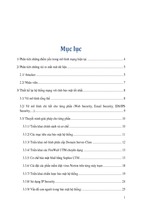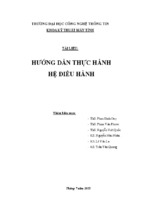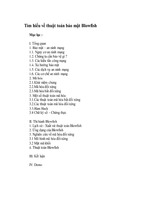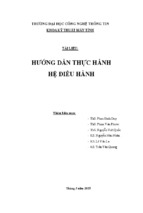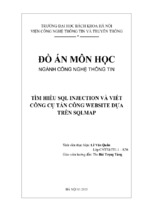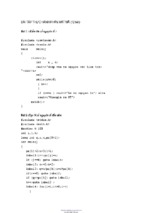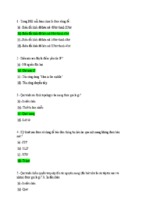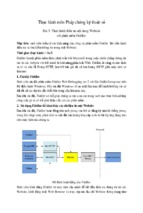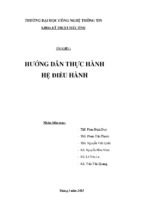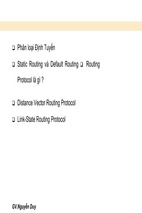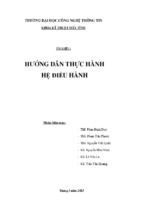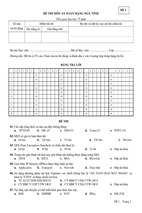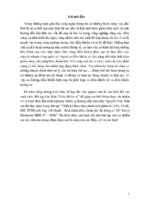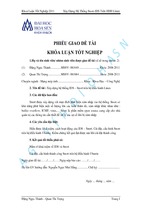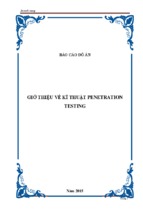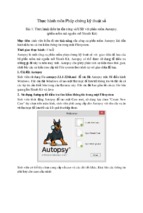1
Looks
Lexis: description
1 Work with partner. Read the information below and label the photos.
a) Will's got a shaved head. He's got a gold chain.
b) Belen's got wavy brown hair.
c) Simon's got very curly hair.
d)Jem's got spiky hair and blond highlights.
e) Sue's got dark hair and blue eyes.
f) Albert's got short grey hair.
g) Gus's got dark brown eyes and short hair.
h) Carla's got wavy fair hair and brown eyes. She's very pretty.
i) Zainab's got dark medium length hair. She's got a lovely smile.
j) Nancy's got short curly hair. She's very sweet.
2 Read the sentences in 1 again. Write words and phrases under the following headings.
Hair length
Hair style
Hair color
Eyes
Other
Opinion
a shaved
head
wavy
brown
blue
a gold
chain
very
pretty
3 Add more words and phrases from the box to the headings in 2.Which words do you usually use:
a) for women and men; b) for women only; c) for men only?
long
straight
a moustache
beautiful
a beard
handsome
green
black
blond
a tattoo
earrings
glasses
red
good-looking a bracelet
4 Work with partner. Describe the people in the class and guess their identities.
For example:
A: She's got long, straight hair and brown eyes. She's got gold earring and a bracelet.
B: Luisa.
A: Yes, that's right.
1
Lexis: look(s) like
1 Work with a partner. Match the people on page 1 with the family relation (a-e).
a) a father and his son
d) a mother and her daughter
b) a father and his daughter
e) a brother and sister
c) a mother and her son
2 Compare you answers to 1 with the other students in the class. Use language in the box to
justify your ideas.
I think Jem / Will … looks like Albert. They've got the same smile / nose …
They've both got short hair / small ears …
3
5 Listen and check your answers to 1.
4 Think about your family. Complete the following sentences so that they are true for you.
Compare your sentences with a partner.
a) I look like _________ because we've got the same _________ and …...
b) I don't look like_________ because we haven’t got _________ and …...
c) My father looks like _________ because they’ve both got _________ and …...
d) My mother looks like _________ because they've got the same _________ and …...
e) _________ look / looks like _________ because ….
Lexis: Clothes
1 Look at the photograph of Stuart. Tick (v) the items in the box that you can see.
2
6 Listen to an interview and underline the correct information. Do you know anyone
like Stuart?
a) He's got 35 / 50/ 350 shirts.
c) He's got 50 / 115 / 150 pairs of trousers.
b) He's got 100 / 200 / 300 suits.
d) He's got 25 / 100 / 125 pairs of shoes.
Lexis
1 Work with partner. Underline the correct verb to complete the sentences.
a) I always get dressed / get clothed before I have breakfast.
b) At the weekend I usually wear / dress jeans.
c) I always take out / take off my shoes before I go in to my house.
d) I never put on / put in trainers to go to work or school.
e) I usually change out / change into casual clothes in the evening.
f) I always try up / try on clothes before I buy them.
2 Which sentences in 1 are true for you? Compare your answers with a partner.
2
LANGUAGE
TOOLBOX
The Oscars
Present
continuous
1
I'm talking
You're talking
He's talking
She's talking
It's talking
We're talking
They're talking
9 Listen to a commentator, Ross White, describing people as they arrive
for the Oscar ceremony. There is one mistake in each picture. Listen and note
down the mistake. Compare your answers with a partner.
2 Match the verb phrases in column A with the noun phrases in column B. Who is
doing each action according to Ross White? Listen again and check your answers.
A
a)
b)
c)
d)
e)
Close up
B
her hand.
her car.
her fans.
a beautiful blue dress.
the big stars.
I'm waiting for
She's wearing
She's getting out of
She's waving to
He's holding
1 Complete these Yes / No questions and short answers with a pronoun and the
correct form of the verb be.
a)
b)
c)
d)
e)
f)
Are you wearing jeans?
___ you sitting next to a window?
___ your teacher standing up?
___ the traffic making a noise?
___ the birds singing outside?
___ you having a good time?
Yes, I am
___
___
___
___
___
No, I'm not
___
___
___
___
___
2
10 Listen, check and repeat. Work with a partner. Ask and answer the
question in 1.
Language reference: present continuous
You use the present continuous to talk about activities in progress now.
Question
Are you waving?
Is it raining?
Are the birds singing?
Short answer Yes
Yes, I am.
Yes, it is.
Yes, they are.
Short answer No
No, I'm not.
No, it isn't.
No, they're not
Compare the meaning of the present continuous and the present simple.
‘What are you doing? ‘I’m preparing my lessons.’ (in progress now)
‘What do you do? ‘I’m a teacher. I work in a school.’ (true all the time)
3
2
Reading &
listening
Reality
1 Read this true story about Glenna's experience with dreams and reality.
Answer the questions.
a) What kind of list did Glenna write?
b) What kind of pictures did she put in a photo album?
Glenna's
dream book
o
ne evening I attended a seminar and heard
a man speak. He explained that the mind thinks
in pictures, not in words. He said that we can
make our dreams become reality. We just have
to follow six easy steps.
1 Make a list of things that you want in
your life.
2 Imagine pictures of the things that you
want in your life.
3 Cut out pictures from magazines of the
things on your list.
4 Put your pictures in a photo album.
5 Wait for your dreams to become reality.
6 Remember, there are no impossible
dreams.
So I thought about what I wanted in life and I
wrote a dream list. After that, I cut up old
magazines and arranged pictures of my dream
list in a photo album. Then I sat back and
waited.
My dream list
1 I want to meet a goodlooking man.
2 I'd like to have a traditional
wedding.
3 I want to have flowers in
my house every day.
4 I'd like to wear diamond
jewellery.
5 I' like to visit an island in
the Caribbean.
6 I want to live in a beautiful
new house.
7 I want to be successful in
my job.
2 Read the story again. Match the things on Glenna's dream list with the pictures a-g
3
11 You are going to listen to more of Glenna's story. Did Glenna's dreams
come true?
4 Work with a partner. Listen again and mark the sentences true of false. Correct
the false sentences.
1)
She met her husband in California.
2)
She met him at work.
3)
He gave her roses every day.
4)
His hobby was collecting diamonds.
5)
They had a traditional wedding.
6)
They went to Hawaii for their honeymoon
7)
They moved into a new house.
8)
Glenna told Jim about her dream book before they got married.
9)
She left her job.
5 How many things from Glenna's dream list are on your dream list? Compare
with a partner.
4
Reality TV
Lexis: TV
1
programme
12 You are going to listen to extracts from eight
different types of TV programme. Number the types of
programme in the order in which you hear them.
2 What types of programme do you like / hate?
Discuss with a partner.
be going to
A game show
A documentary
The news
A soap opera
A sports programme
Reality TV
A chat show
The weather
1 You are going to read and listen to an interview. Daniel, a TV presenter, is talking to
Lynne, the winner of Big Brother, about her plans for the future. Use the phrases in the
box to complete the conversation. You can use the phrases more than once.
I'm going to
are you going to
I'm definitely not going to
we're going to
you're going to
LANGUAGE TOOLBOX
(be) going to + verb
I’m going to talk
You’re going to talk
He’s going to talk
She’s going to talk
It’s going to talk
We’re going to talk
They’re going to talk
D: Lynne, congratulations. How do you feel?
L: Oh, great. I feel fantastic. I’m so happy.
D: What’s the first thing (1) you’re going to do when you get out?
L: (2) ______ have a big party for all my friends. I missed them so much.
D: Ah. What (3)_____ do with the money?
L: Well, (4) _____ give some of it to charity, and with the rest (5) _____ buy a house for my
mum.
D: So, which of your Big Brother housemates (6) _____ see again?
L: There are some people I’d like to see again,
and there are two people (7) _____ see again.
I think you know who they are.
D: Yes, of course. That was really horrible.
But your hair looks ok now.
L: Yeah, well.
D: Anyway, Lynne, the question everyone
wants to ask. You and Eddie became really
good - er - friends in the House.
So (8) _____ see Eddie again?
L: Well, I don’t know. Yes of course (9)
_____ see one another. But we
don’t know what’s going to happen.
D: What advice would you give to
future Big Brother contestants?
L: Don’t do it! No, I’m only joking.
Be yourself and be patient. It’s very boring in there.
D: Finally, what are your future plans?
L: Well, first (10) _____ go out and spend some money. Then I want to start my singing
career. (11) ______ record a CD. Actually, I’d quite like to be a television presenter.
D: Oh – well, good luck!
2
20 Listen and check your answers
3 Work with a partner. Each of these good intentions has one word missing. Re-write each
sentence with the word in the correct place.
a) I'm going do more exercise. (to) I'm going to do more exercise.
b) I going to save money. ('m)
c) I’m to spend more time with my family. (going)
d) I'm going book my holidays earlier. (to)
e) I'm going to arrive late for appointments. (not)
4 Which of the good intentions in 3 do you have? Discuss with a partner.
5
Close up
Want to, Would like to, Hope to
1 Re-write the sentences so that they make sense.
a)
b)
c
d)
e)
I world travel to around want the.
married to I get want don't.
lots like have of I'd to children.
be to famous wouldn't I like.
hope before fifty I I'm retire to.
I want to travel around the world.
2 Tick (v) the sentences that are true for you. Compare with a partner.
3 Work in groups of three. Choose five pictures (or draw your own in box l) and tell your partner
how they represent your dreams.
Language reference: future forms
want to , 'd ( would) like to, hope to
(be) going to
You use these structures to talk about your
dreams or desires for the future.
You use (be) going to talk about your future
plans and intentions.
We want to visit India next year.
One day, I’d like to climb Mount Fuji in Japan.
My sister hopes to continue her studies in the
USA.
I'm going to have a big party for all my
friends.
We aren't going to stay for a long time.
Are you going to visit your parents this
weekend?
6
I have a dream
Song
I have a dream, a song to sing
22 Use the words in the box to
1
complete the song. Then listen to the
To (1)................. me cope with anything.
song and check your answer..
If you see the (2)................ of a fairy tale
good good wonder help
future right
darkness
reality
right
You can take the (3)................even if you fail.
5
I believe in angels,
Something (4)...................in everything I see.
2 Choose the most appropriate word /
I believe in angels
phrase to complete the statements
When I know the time is (5)..................for me.
below. Compare your ideas with a
partner.
a)
I’ll cross the stream – I have a dream.
10 I have a dream, a fantasy
It’s a positive / sad / romantic
To help me through(6)......................
song.
b)
And my destination makes it worth the while.
I think the song is great / okay /
Pushing through the (7)..........still another mile.
not bad.
c)
I often / sometimes / never listen
I believe in angels
15 Something (8)......................in everything I see.
to songs like these.
I believe in angels
When I know the time is (9)...................for me
3 Complete the sentences with words
I’ll cross the stream – I have a dream.
from the song.
I’ll cross the stream – I have a dream.
a) I had a bad d_____ last night.
b) I have a particular song that I
s_____ when I’m happy
c) I have to c_____ with a lot of
Abba
From Sweden, Abba was
the most popular pop
band in the world in the
late 1970s and early
1980s.
problems in my job.
d) When I was a child, I had a
favourite fairy t_____.
e) I b_____ in miracles.
f) I can see s_____ good in
everyone.
4 Which sentences in 2 are true for
you? Compare with a partner.
7
3
Reading
Things
1 Work with a partner and match pictures a-j with the words in the box.
an address book
glasses
a glove a handbag
money
a pet (snake)
a TV remote
keys
a mobile phone
a wedding ring
2 The items in 1 are the top ten things British people are most likely to lose. Which
do you thing are the top three things? Discuss with a partner.
3 Work in small groups. Refer to Top ten things in 2 and discuss the questions.
a) Which things have you got with you now / at home / at work or school?
b) Which things do you often lose / sometimes lose / never lose?
c) When was the last time you lost something? What happened?
4 Work with a partner. Read the article and answer the questions:
a) What is Lost Property Office?
b) How can you contact the Lost Property Office?
c) Is there a similar office in your country?
Lost Property Office
Listening
If you travel by taxi in Lodon and leave something in the taxi, you may possibly find it
in the Lost Property Office. Property that is found in a London Taxi is handed in at a
London police station and forwarded to the Lost Property Office. Property can take up to
5 working days to arrive at the Lost Property Office.
You can enquire whether your property has arrived at the Lost Property Office in one of
the following three ways:
1. You can enquire in person by visiting the Lost Property Office (near Baker Street
Underground Station) between the hours of 08:30 and 16:00, Monday to Friday.
2. You may make a telephone enquiry by telephoning 0845 330 9882 between 08:30 –
16:00, Mondays to Fridays.
3. You may make a written enquiry by either:
- Posting or faxing a letter.
- Completing the on-line form
1
23 You are going to listen to a phone conversation between Judy and a Lost
Property officer. Judy lost a bag yesterday. Which bag did she lose (a, b or c )?
2 Complete the questions that the Lost property officer asks in 1. Use the words in the
box. Listen and check your answers.
What
How
Is there
What kind
Can
What's
a)
b)
c)
d)
e)
f)
What colour is it?
_________ it made of?
_________ you give me some more information?
_________ big is it?
_________ anything in it?
_________ of bag is it?
3 Work with a partner. Imagine you lost your own bag. Write a conversation between
you and a Lost property officer. Act out your conversation in front of the class.
8
The schwa /ə/
25 Listen and repeat these chants. What do all the vowel sounds in red have in common.
1
I'm younger than my teacher.
I'm younger than my doctor.
I'm younger than my neighbor.
They're not as young as me!
I'm taller than my sister.
I'm taller than my brother.
I'm taller than my mother.
They're not as tall as me!
2 Are any of the lines in the chant true for you? Use words from the box or your own
ideas to make a chant that is true for you. Say your chant to the class.
short / shorter
poor/ poorer
old /older
fast / faster
low / lower
quiet / quieter
happy / happier
rich / richer
luck / luckier
Close up: Comparatives & Superlatives
1 Complete the quiz
GENERAL KNOWLEDGE QUIZ
lead gold iron
1. ...............is heavier than .................,
but ..................... is the heaviest.
Venus
Mars
the Earth
2. .................is further from the Sun
than................, but...................is the
furthest.
Christianity Buddhism Islam
3. ........................is an older religion
than....................., but....................is
the oldest.
Russia
Canada
China
4. .................is bigger than...................,
but ....................is the biggest.
a rocket engine
a jet engine
a diesel engine
5. .......................is more pwerful
than....................., but ....................is
the most pwerful.
Rio de Janeiro Singapore Cairo
6. ...................is closer to the equator
than...................., but.................is the
closest.
2 Write the comparatives and superlatives of the
adjectives
Adjectives
Comparatives
Superlatives
Nice
....................
……………
Quiet
……………
……………
Slim
……………
……………
Hot
…………...
.…………..
Curly
…………...
…………...
Lucky
…………...
…………...
Good
…………...
……………
Bad
…………....
…………...
Expensive
……………
…………...
Confident
…………….
……….…...
3 Work with a partner. Combine comparative adjectives
from 1 with nouns in the box - or your own ideas- and
think about things you'd like.
Example: I’d like softer and shinier hair.
a bedroom
a father
a house
·
·
·
a boyfriend
a car
a girlfriend
hair
a job
a mother
a computer
holidays
neighbours
Write two true sentences and one false sentence
about things you'd like.
Exchange your sentences with your partner.
Guess which of your partner's sentences is false.
Discuss your ideas.
4 Here are some more general knowledge questions.
-
Putting the adjectives in brackets in the comparative or superlative.
Answer the questions with a partner.
1.
2.
3.
4.
5.
6.
7.
What is....................(high) mountain in the world?
What is....................(big) island in the world?
Which elephant has.....................(big) ears, the African or the Indian elephant?
What country has....................(large) population in the world?
Which animal is......................(fast), a cheetah or a lion?
What is............................(ancient) monument in the world?
What is............................(intelligent) animal in the world?
Turn to page 28 to see tthe answers.
9
Language reference: comparatives & superlatives
All one-syllable and some two syllable adjectives
1
2
3
Adjectives ending in a consonant or 'e'.
older - older than - the oldest
nice - nicer than - the nicest
adjectives ending in a single vowel followed by a
single consonant.
big - bigger than - the biggest
Adjective ending in 'y'.
happy - happier than - the happiest
Reading
Irregular adjectives
good - better than - the best
bad - worse than - the worst
far - further than - the furthest
Adjective that have two or more syllables
interesting - more interesting than - the most
interesting
Expensive - more expensive than - the most
expensive
Negative comparisons ( not as …as)
I’m not as tall as my father.
The most valuable things in the world
I'm not as tall as my father.
1 Work with a partner. You are going to read an article about a dress that belonged to
Marilyn Monroe. Guess the answers to the questions. Then read the article to check.
1 How tall was Marilyn Monroe? a) 1 metre 54 b) 1 metre 68 c) 1 metre 82
2 How old was she when she died? a) 36
b) 42
c) 50
3 In what year did she wear the dress at John Kennedy's birthday celebration?
a) 1955
b) 1962
c) 1968
4 How much did she pay for the dress?
a) $ 3,000
b) $ 7,000 c) $ 12,000
5 How much did a collector pay for the dress in 1999?
a) $765,000
b) $942,000
c) $ 1,150,000
Happy Birthday Mr. President …
In May 1962, Marilyn Monroe sang
‘Happy Birthday, Mr. President’ at
John Kennedy's birthday celebration
in New York.
She wore a skin-tight dress made of
silk and covered in 6,000 beads. It
cost her $ 12,000. Her hair dresser said'
Marilyn was amazingly beautiful that
night, like a vision.
37 years later, Christies of New York
held a ' Private property of Marilyn
Monroe ' auction. 1,500 items of
Marilyn's property were sold, including
the famous dress.
When Christies looked for a model
to wear the dress at the auction, they
were surprised to find that the 1 metre
68 actress was very
Lexis: big numbers
slim. ‘One of the smallest mannequins
we found in the United States was still
not the correct size for the Happy
Birthday dress', they said. ‘Marilyn was
much smaller than people realized'.
When a collector bought the dress
for $ 1,150.000, it became the most
expensive dress in the world. The
buyer said that it was cheaper than
he expected. He was prepared to
pay $ 3,000,000. ' I stole it ', he said.
There are few photos of Marilyn
singing ' Happy Birthday, Mr President ',
but it was her last memorable public
performance. She died three months
later at the age of 36.
2 What is the most you usually pay for: a) a pair of trainers; b) a pair of jeans; c)
a formal dress or pair of trousers; d) a jacket or a coat; e) a pair of shoes?
Compare your answers with a partner
1
26 Say the numbers below. Insert and into the numbers where you need to.
Then listen check and repeat.
a) 6 6, 112 sixty- six thousand, one hundred and twelve
b) 1 9 4, 4 5 9
c) 2 5, 000
d) 1 5 7, 9 4 7 e) 1, 9 18, 387
2
f) 3 2 4, 1 8 8
27 The numbers in 1 were the highest prices ever in dollars for: a bikini;
a watch; a pair of jeans; a film costume; some pop star clothing; a boxing
10
Energy
Reading
1 You are going to read about Joaquin Cortés, a
famous Spanish flamenco dancer. Complete the
headings in the article.
Ancestry
Shoes
Eating
Sleep
Family
Practice
Travel
1 Ancestry
His long dark hair is a symbol of his gypsy ancestry. He was born in 1969 in
Córdoba, southern Spain and moved to Madrid when he was five.
2__________
He sleeps for five or six hours a night and wakes up full of energy.
3__________
Cortés practises for more than five hours a day. His dance is so energetic that he
loses two kilogrammes during each performance.
4__________
He has a passion for women, but relationships are difficult beacuse he is married to
his work. His family is the most important to him – he sees them as often as possible.
5__________
When he isn’t performing, he eats three times a day. But when he is performing, he
drinks coffee with milk all day and eats dinner late in the evening.
6__________
Like a true gypsy, he travels all the time. But his method of transportation is not
traditional – he travels by plane.
7__________
Cortés became interested in dance at the age of seven. His uncle, a flamenco dancer,
was his hero. At the age of twelve, he was part of a TV ballet troupe, and at fifteen
he was a member of Spain’s National Ballet company. Now Cortés buys a new pair
of flamenco shoes every month.
1 The beginnings and ends of the sentences are mixed up. Re-write the senetces so that they
are correct arccording to the article.
a) He sleeps as often as possible. → He sleeps for five or six hours a night.
b) He practises every month.
c) He sees his family for five or six hours a night.
d) He eats all the time.
e) He travels for more than five hours a day.
f) He buys new shoes three times a day.
2 Joaquin Cortes dances flamenco. Name five other styles of dance. Which is your favourite
style? Discuss with a partner.
/٨/ sound
1 Say the following words. In each group circle the word with a different vowel sound from the
other two.
a) come home son
d) become other open
b) front month score
e) enough shoulder couple
c) morning color stomach
f) shouldn't southern cousin
2
28 Listen, repeat the words and check your answers to 1.
11
One or twice?
Lexis:
frequency
expressions
1 Put the expressions (A-J) in the box in order of frequency on the line.
(A) once a month (B) every ten years (C) three times a day (D) every year
(E) every two weeks (F) twice a year (G) once a day (H) every four
months (I) twice a week
(J) four times a week
Not very frequent
Very frequent
B
A
C
2 Work with a partner. Follow the instructions.
· Point to the parts of the body referred to below (This is my hair. These are my eyes, etc.)
· Read the questions and write your answers. Use frequency expression from 1
· Ask your partner the questions and compare your answers.
My hair:
How often do you go to the hairdresser’s?
My eyes:
How often do you sleep more than eight hours?
My chest:
How often do you do exercise?
My heart:
How often do you fall in love?
My stomach: How often do you eat?
My legs:
How often do you go dancing?
My feet:
How often do you go for a long walk?
3 Read the interview with champion long distance runner. Paula Radcliffe. The
underlined frequency expressions are all answers to the interviewer's
questions. Write the questions.
For example: Almost everyday - How often do you eat chocolate?
Lexis: collocations
1 Underline the correct collocation for these actions
a)
b)
c)
d)
2
Bend your knees / head.
Cross your shoulders / legs.
Fold your feet / arms.
Nod your legs / head.
e)
f)
g)
h)
Clap your hands / knees.
Stamp your legs / feet.
Click your head / fingers.
Shrug your shoulders / legs.
29 Listen, check your answers to 1 and do the actions. Work with a partner.
Tell each other to do some of the actions.
12
Listening
I'm too tired
1 Match the top ten excuses for not doing exercise with the pictures (a-j).
1
2
3
4
5
2
' I'm too tired.'
' I've got a headache.'
' I've got too much work.'
' I've got a bad back.'
' I've got stomach ache.'
6
7
8
9
10
' The swimming pool is too crowded.'
' I've got a cold.'
' I haven't got enough time.'
' I haven't got enough money.'
' I 've got a bad foot.'
31 Listen to conversation between Danny and Louise. Tick( v) the excuses in 1 that
Louise uses for not doing things.
3 Work with a partner. Make up conversations like the one in 2. use your favorite excuses
for not doing things.
Close up
Problems & advice
1 Complete these sentences with too or enough.
a) My life is too busy.
b) I've got ____ much work.
c) I've got ____ many problems.
d) I'm not relaxed ____.
e) I haven't got ____ time
f) I haven't got ____ money
2 Are any of the sentences true for your partner? Find out.
3 Put the words in the correct order to make the sentences with should / shouldn't.
a) Alex eats too much chocolate. ( more He fruit eat should )
b) Bella's computer isn't fast enough. ( a buy She one should new )
c) Chris is too stressed at work. ( his He job change should )
d) Dana doesn't get enough sleep. ( stay She late shouldn't so up )
e) Ed drinks too much coffee. ( should He water more drink )
4 Change the names in 3 to make true sentences about people you know.
Language reference: problems & advice
too & enough
You use too before adjectives and too many / much before nouns.
adjective
noun
noun
I'm too tired. I've got too much work. There are too many problems.
You use enough after adjectives and before nouns.
adjective
noun
noun
It's not big enough. I haven't got enough money. Have you got enough room?
Should / shouldn't
You can use should and shouldn't to give advice.
You should get out more. You shouldn't work so late.
13
5
dotcom
1 Work with a partner. Match each website address with a reason for using it.
Lexis:
to - infinitive
a)
b)
c)
d)
e)
f)
www.cheapflights.com
www.yahoo.com
www.flowers2send.com
www.eBay.com
www.amazon.com
www.world-party.com
1 to buy books.
2 to buy and sell things.
3 to buy plane tickets.
4 to order flowers.
5 to get information about parties.
6 to search for information on the internet.
2 Which of the website in 1 do you know or use? What other website do you
use? Why do you use them? Discuss with a partner.
For example: I use www. cheapflights.com to find out flight times and to buy
plane tickets.
3 Why do you use the following things? Choose two sentence beginnings and
complete them in as many ways as you can. Compare your sentences with a
partner.
a) I use my computer to ____.
b) I use my mobile phone to ____.
c) I use my car to ____.
Lexis: computer 1
terms
2
35 Listen to the first conversation between Tom and his mum. What does
Tom's mum want to do?
Listen again and tick (v) the computer terms which Tom's mum understands.
Put a cross( x) by the terms she doesn't understand.
a) surf the net
b) send an email
c) icon
3
d) I use my credit card to ____.
e) I use my personal organizer to ___.
f) I use my English to ____.
d) desktop
e) click
f) mouse
36 Listen to the second conversation. Underline the computer terms in
column A that Tom uses.
4 Work with a partner. Match the terms in column A in 3 with the definitions in
column B. For example: a) - 8.
A
a)
b)
c)
d)
e)
f)
g)
h)
j)
a file
to search
to go online
to save
to download
a screen
to delete
a toolbar
to log on
B
1
2
3
4
5
6
7
8
9
to move information from the internet to your computer.
to use your computer to look for information on the internet.
a flat surface on a computer where you see words and pictures.
to access a website, for example by typing in a password.
a row of icons on a computer screen that perform actions when you click on them.
to remove something from a computer
to connect to the internet.
a set of information such as a document or a picture that is stored on your computer
to make your computer retain information that you have put into it.
5 Work in small groups. Write more English computer terms that are used in
your language(s). Compare your lists. Which group has the longest list?
14
Reading
dotcom success
1 You are going to read an article about one of the most successful websites in Britain. Read the article
quickly and discuss these questions with a partner.
a) What can you do if you log on to www.friendsreunited.com?
b) Why is www.friendsreunited.com so successful in Britain?
c) Do similar websites exist in your country?
2 Read the article more carefully and mark the sentences true or false. Correct the false sentences.
a) The person who had the original idea for the website was a pregnant woman.
b) His / Her previous job was an accountant.
c) The website is advertised on television.
d) The website is popular because it helps people find old friends.
e) The offices are in a university.
f) The company employs 1,200 people.
g) The company staff work from home.
h) The 99-year-old member of the website is looking for her old boyfriend.
3 How many old school friends do you still see now? Think about your primary school, your
secondary school and your university. Compare with your partner.
Language reference: present perfect
You can use present perfect to describe
complicated actions that have taken place in '
time up to now'. You often use ever to mean ' in
your life '.
Note: you can not use the present perfect if
you want to describe when a completed
action took place. You must use the past
simple.
Have you ever met somebody on the internet?'
Yes, I have. / No, I haven't.
Has your teacher ever spoken to you in your
own language? Yes, she has. / No, she hasn’t.
I went to Paris three years ago.
Not I've been to Paris three years ago.
He met the love of his life in 1996.
NOT He’s met the love of his life in 1996.
15
Close up:
Past participle
1 Copy and complete the table with the three forms for each verb in the box. Which verbs
have irregular forms?
change
2
do
go
hear
make
meet
record
spend
travel
Infinitive
Past simple
Past participle
change
changed
changed
visit
37 Darren and Geoff meet up after getting back in touch through the Friends
Reunited website. Use each past participle from 1 to complete their conversation.
Listen, read and check your answers.
D: And I've been to a U2 concert but I haven't
D: Geoff?
G: Darren! Wow, you haven't (1) changed at all.
met them.
D: And you look exactly the same - good to see
G: Have you (6) ___ much?
you.
D: Well, I've (7) ___ to South America three
G: Wow, I can't believe it - after fifteen years.
times.
D: Yeah. Have you (2) ___ from any other old
D: But I haven't been to the Himalayas yet, or
classmates?
G:
G: Wow.
Yes, a couple of people - that Friends
Egypt.
G: Have you ever been snowboarding?
Reunited website is brilliant.
D: Yes, I've done that. But I haven't done a
D: Hey. Have you got that list?
G; Yes, here it is.
bungee jump. I haven't (8) ___ a lot of
D: Oh, yes. I remember.' 10 things to do before
money, either – I’m a teacher.
we're 30'. Well, we're 29 - how many things
G:
G: Ha ha. I’ve made a lot of money, but I've
(9) ___ it. Anyway, have you met the love
have you (3) _____?
Not many – three, I think. I've been
snowboarding, and I've done a bungee jump,
and I've (4) ___ John Lennon's grave in New
of your life?
D: No. I haven't (10) ___ anyone special yet.
How about you?
G: Yes, I forgot to tell you. I'm married to
York. And that's it, really. What about you?
3 Work with a partner. Refer to the list '10 things to do before we're 30' and discuss.
a) Which things has Geoff done?
b) Which things has Daren done?
c) Which things have you done?
16
6
Drive
Reading
1 Work with a partner. You are going to read an article about the best and the worst drives to
work. Read these sentences. Put B if you think it refers to the best drive and W if you think it
refers to the worst drive.
a)
b)
c)
d)
e)
f)
Jack believes that his drive to work is the most spectacular drive in the world.
Her office is seven kilometres from her house, but it takes two hours to get there.
Every morning, he drives to work along the coast.
Traffic moves down Sukhumvit Road in the centre at half a kilometre an hour.
' Now, everybody has a car, and there aren't enough roads in the city'.
As he drives through the National Park, he often sees koalas.
2 Read the article and check your answers. Which drive is similar to your drive to work / school?
Tell your partner.
17
Close up:
1 Work with a partner. Complete the comprehension questions for the
article on page 17 with word from the box.
Questions with How
+ adverb / adjective
& What + noun
far
a)
b)
c)
d)
e)
f)
g)
h)
i)
far
fast
long
long
many
often
sort
time
How far is it from Cape Otway to Melbourne?
How ____ tourists come to Victoria every year?
How ____ does Jack drive along the Great Ocean Road?
How ____ does it take Jack to drive to work?
What ____ of scenery does Jack drive through?
How ____ is it from Siriwan's house to her office?
How ____ does it take Siriwan to get to her office?
What ____ does Siriwan set off from her house?
How ____ does the traffic move down Sukhumvit Road in the evening?
2 Read the article on page17 and answer the questions in 1.
Language reference: question forms
Questions with How + adverb / adjective & What + noun
You can form many different questions by combining How + adjective/ adverb ( How …far ,
many, often, tall, etc.) and What + noun ( What … colour, size, sort, time, etc.)
Question words (auxiliary) verb
What time
do
How many people
can
How long
does
1
Lexis: prepositions
of movement
subject
you
get up?
you
get in your car?
it
take you to get to work?
Work with a partner. Choose the correct alternative to complete these
sentences.
On my way to work …
a) I go down / through the stairs.
b) I go out of / along my apartment.
c) I go through / across the street.
d) I go through / along the park.
e) I go into / along the river.
f) I go up / over a bridge.
g) I go across / up a hill.
h) I go past / down some shops.
i) I go into / down my office.
2
Think about your own way to work or school. How many of the
sentences in 1 are true for you? Compare with a partner.
3 Write a description of your way to work or school. Try to use all the
prepositions in 1 at least once. Re-order the sentences and change the
underlined words as necessary. Compare your description with a
partner's.
18
It drives me mad!
Listening 1
40 You are going to listen to six people talking about what drives them mad on the
road. Listen and match the people (1-6) to the pictures (a-f).
2 Work with a partner. Complete the following task.
.
Match key words and expression in the box with the picture in 1.
For example: a) - indicate …
.
Think of three situations that drive you mad on the road. Use the situation in 1 or your
own ideas.
.
Tell your partner. Begin: ' I can't stand it when …'
impossible to overtake
park on the pavement
pedestrians
indicate
turn left
turn right
go straight on
get stuck in traffic jams
rush hour
road works
go on the motorway
have an accident
the traffic lights
1
Ordinal
numbers
41 Work with a partner. Complete the following table. Listen and repeat the
ordinal numbers.
1st
first
2
2nd
3rd
4th
6th
fifth
42 Look at the street plan. Listen
to three sets of directions from A to B.
Match starting points A1, A2, A3 with
finishing points B1, B2, B3.
1 A1
____
2 A2
____
3 A3
____
3 Work with a partner. Use the map and
take it in turns to give directions from
A to B. Then think about area around
your school. Take it in turns to give
similar directions to shops, bars,
restaurant, etc, near the school.
19
7th
9th
eighth
tenth
7
Justice
Reading
1 You are going to read two stories. The six pictures below (a-f) are important in the stories. Complete
the tables with the words in the box.
paint
bag
wine
club
scissor
party
2 Read the stories and match items (a-f) in 1 to the appropriate story. What is the importance of each
item in the stories? Tell your partner.
Revenge is sweet
Dinner by post
When Lady Sally Moon found out that her
husband was having an affair, she didn't leave
him. She thought it was better to be unhappily
married than not married at all. But her husband
didn't hide his affair, and this made her feel
really bad.
Last year, I went out with Hermione for four
months. We were very different. I always arrived
early; she always arrived late. I was very tidy; she
was terribly untidy. But to be honest, I found the
differences rather attractive.
One day she was driving home when she saw
his car parked outside his lover's house. She was
angry and she decided to get her revenge. She
quickly drove home, put a pot of paint into her
car and drove to the lover's house.
Then she poured thick white paint all over her
husband's beautiful new black car.
Next, she carefully took his collection of fine
wines from the cellar. That night she went
round the village where she lived, and quickly
placed a bottle of wine on the each doorstep.
She left the other bottles on the war memorial in
the centre of the village.
Finally, she took a pair of scissor and cut off the
arms and legs of all his suits – 38 of them in all.
3
At first, she was only fifteen or twenty minutes
late. But she got later and later.
At the end of August, it was my birthday. I'm a
good cook, so I decided to have a dinner party and
I invited four friends.
That evening, my four friends arrived on time, but
unsurprisingly Hermione wasn't there at eight
o'clock. But then she wasn't there at nine o'clock,
half past nine or ten o'clock.
This was extremely late, even for Hermione. So I
phoned her mobile. When she answered, music
was playing loudly in the background. ‘Where are
you?' I shouted angrily.' I'm at night club', she
shouted back. I was furious. I went to the kitchen
and put her meal into a plastic bag.
The next morning I posted it to her with a note
saying,' Here your dinner.' A week later I got a
postcard from Hermione. It said, ' Too much salt'.
45 Work with a partner. Choose a suitable ending for each story. Read and listen and check
your answers.
a)
b)
c)
d)
e)
f)
The following week, I had another dinner party.
As you can imagine, I never saw her again.
Her husband wasn't very happy when he got home.
In the end, I apologized to my friends.
After that, she felt much better.
A few days later, she went skiing.
4 Which story do you like best? Tell your partner why?
20
- Xem thêm -

